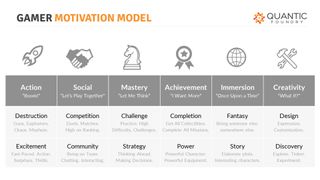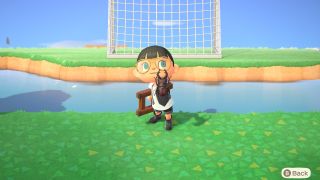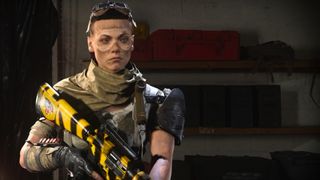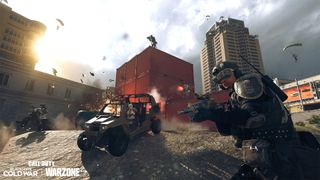Call of Duty: Warzone and Animal Crossing: New Horizons are nothing alike. One is a hardened battle royale, the other is a cutesy life sim. But as a 31-year-old woman who was diagnosed with both Generalized Anxiety Disorder (GAD) and Attention Deficit Hyperactive Disorder (ADHD) within the last two years, these two games have been the structural support columns holding up my mental well-being. They center me in ways that working out, watching movies, or doing puzzles do not, and for the last year I've wondered how two diametrically opposed games managed to scratch the same mental itch.
It's important to note that I am also seeing a therapist and a psychiatrist for my conditions, as gaming in no way replaces medical treatment. If you are struggling with your mental health, seek professional opinions and support systems.
Living in New York City at the start of the pandemic was incredibly stressful, as I spent around six months barely leaving my apartment. Instead, I got lost in the world of Animal Crossing: New Horizons and found peace in its alternate reality. The last few months have been a different kind of struggle, as it seems like my brain has finally realized I've spent well over a year mostly alone in the same apartment, at the same desk, taking part in a now-monotonous daily routine. Now the only game that quiets my noisy brain and pushes out intrusive thoughts is Call of Duty: Warzone.
So how do two very different games manage to help both my GAD and my ADHD during an especially difficult time? Turns out, there's empirical evidence that video games can help us in surprising ways, but what kind of games help and how they do so is different for everyone. So, I spoke with Dr. Rachel Kowert, research director at Take This, a mental health nonprofit that serves the gaming industry, to learn more about play motivations, gaming, and mental health.
Play motivations

In her YouTube series Psychgeist, Dr. Kowert helps break down what makes players pick up a certain type of game or continue to return to games they've already beaten – AKA gameplay motivations. "Broadly speaking, we are motivated to play games because they're fun," she tells me. "But they also give us a sense of achievement. They give us a sense of freedom, a sense of autonomy, and they give us a sense of relatedness with both other players and also characters in the games themselves."
There are specific reasons why individuals are drawn to certain games, and which kinds of games can elicit the type of responses Dr. Kowert mentions above – it's all based on our personalities. "What serves you serves me differently," Kowert says. That's where gameplay motivations come into play. In her video 'Jargon Shmargon: Play Motivations', Kowert references Dr. Nick Yee's 2007 gameplay motivation model, which initially separates player motivations into three broad categories: immersion, achievement, and social. These three gameplay motivations line up with the three broad tenets of self-determination theory: autonomy, competence, and connection. Self-determination theory suggests that people are motivated to grow by those three innate psychological needs, which are universal across cultures.
A refined model of gameplay motivations from Quantic Foundry (founded by Yee) proposes that there are six broad motivations that help players choose what type of game they want to play: action, social, mastery, achievement, immersion, and creativity. Within those categories are two subcomponents each, like "excitement" which lies under the action motivation (seen in players who look forward to racing around Mexico in Forza Horizon 5), or "power" under the achievement motivation (seen in Destiny 2 players finding solace in making numbers bigger).
After better understanding these gameplay motivations, I'm now able to parse out with Dr. Kowert what exactly Animal Crossing and Warzone do for me and the way my mental health disorders manifest.
Animal Calming New Horizons

It's not hard to wrap your head around why Animal Crossing might serve as a salve for anxiety. It's incredibly calming and cutesy, and in the world of New Horizons, nothing bad can happen to you. But I don't play Animal Crossing just because of its soothing vibes: one of my biggest gameplay motivations is achievement, so at the start of the pandemic, I would spend hours trying to catch a damn coelacanth.
"If we go back to those three categories, right? Accomplishment: you could go fishing, you could have a mortgage at a time when you felt like you couldn't go anywhere or accomplish anything," Kowert explains. I ask if that sense of accomplishment has an added layer of meaning for someone like me, whose ADHD makes it a struggle to complete daily tasks. "Games are really good at focusing attention, specifically for people with ADHD. Because it is a novel experience that's constantly changing, research has found that it's particularly effective at honing attention – specifically for people who have difficulties with honing attention. So that makes perfect sense for you," Kowert points out. "But what's key here is that visceral feeling, the emotions associated with having a sense of accomplishment – there's not a distinction between how it feels emotionally between doing that in Animal Crossing and doing that in the real world."
At a time where so many of us felt trapped in our homes and incapable of doing much else other than just existing day-to-day, putting one foot in the front of the other, Animal Crossing provided a constant sense of accomplishment. And for someone like me, who at the time didn't yet have an ADHD diagnosis and just assumed the constant struggle to complete tasks was normal, Animal Crossing gave me accomplishable, measurable tasks that always felt achievable.

"When the world is more chaotic around us, we seek ways to find structure and order in places that we can."
Dr. Rachel Kowert
New Horizons also offered me structure when I desperately needed it. "When the world is more chaotic around us, we seek ways to find structure and order in places that we can. And that's what Animal Crossing is really good at – it's a daily schedule, and the hours work the same as ours, and the seasons work the same as the seasons do where we live. It gives us a sense of structure and normalcy," Kowert explains. So, I may have barely left the stale, recycled air of my apartment all last summer, but I did successfully dig up manila clams, catch every available seasonal fish in my hemisphere, and make a killing on the stalk market - in Animal Crossing, that is.
After over a year of anxiety and unknowns, however, the accomplishments and structure of Animal Crossing aren't enough to keep intrusive thoughts or shitty behaviors (read: over-drinking) at bay. That's where Call of Duty: Warzone comes into play.
Calm of Duty: Warzone

Upon reflection, it's clear that since my late teens competitive shooters have been ticking off my gameplay motivation boxes: action, social, and mastery. But there's another layer to why Call of Duty: Warzone is my go-to, and it has a lot to do with my ADHD.
Shortly after I got an apartment with my partner last August (after living with three other people), the pandemic restrictions lifted somewhat in New York and he returned to work. Since then, I've been alone for over 50 hours a week and I've noticed my mental health has gotten worse, and I've been relying on alcohol or over-eating to quell a noisy brain. It's been so bad, in fact, that I asked to be screened for ADHD several months ago and received a pretty clear diagnosis.
I explain to Dr. Kowert that sometimes I put on my headset and play Call of Duty: Warzone for several hours when I'm feeling especially scattered or irritable, and I'm curious to learn why such a loud/busy game manages to help center me. "Could you speak to what kind of itch that scratches for me?" I ask. "Talk about focused attention," Dr. Kowert laughs. "That's the far end of the spectrum. I would say for you, it's about calming the world and honing in on something specific. First-person shooting is probably the most fine-tuned attention game you can play."
"I think that's a really good reflection of how games are being used for you as a centering tool, and I really love the wording that you use there. I hope you use that in the article – how it centers you. Because I think a lot of people think that one: games don't do that, and two: there seems to be a general assumption that people with ADHD who play games – it will make their ADHD symptoms worse. And it's the opposite."
Centering opportunities

Ultimately, gameplay motivations are different for everyone, but games serve the same function for us all. My shifting motivations are proof of that – Dr. Kowert suggests that despite their disparities, Animal Crossing and Warzone help me in the exact same way. Last year, when I felt trapped, I escaped to the shores of a randomly generated Animal Crossing island to meet a brand-new Villager. Now, when I'm angry at myself for struggling through a workday, I find solace in a few Warzone wins. "From the outside, they seem so different," explains Dr. Kowert. "But at the base level, they're doing the same thing for you: focus, autonomy, competence."
"I think it is really interesting and important and critical to have this discussion," says Dr. Kowert as our conversation draws to a close. "These two games serve the same function, they give you the same outlet to center yourself, they give you the same opportunities for achievement, relatedness, and autonomy . I think that's really the crux of the argument that I think a lot of people are going to be surprised about."
Games can be a force for good in more ways than one. Like how Psychonauts 2 and its mental metaphors helped our Hope Bellingham combat negative feelings.


